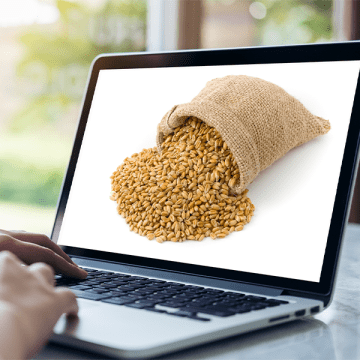In addition to being highly sought after by consumers, long-chain polyunsaturated fatty acids are essential nutrients for the growth of aquatic animals. For this reason, the fatty acid profile of farmed fish and shrimp is heavily influenced by the lipid composition of their ingested feed. Some species, including freshwater ones, have the ability to synthesise polyunsaturated fatty acids. Yet marine fish, such as seabass or seabream, are completely devoid of this ability. Therefore, these essential fatty acids must be provided to them through their feed.
However, raw materials that can provide such nutrients without being derived from fish processing scarcely exist. Microalgae, insect meal, and GM plants are among some possible substitutes. While the two first options have only barely been explored, the use of GMOs has proven relatively successful from a zootechnical point of view. However, this option still has a long way to go before it can gain widespread acceptance, especially within the European Union.
Whatever your feed issue, experts from Techna are at your service, thanks to our thorough knowledge, experience, and accuracy in meeting farm animals’ nutritional needs. We assist feed manufacturers in finding alternatives to fish by-products for the benefit of plants. For more information, please don’t hesitate to contact our experts at the Techna Group.




